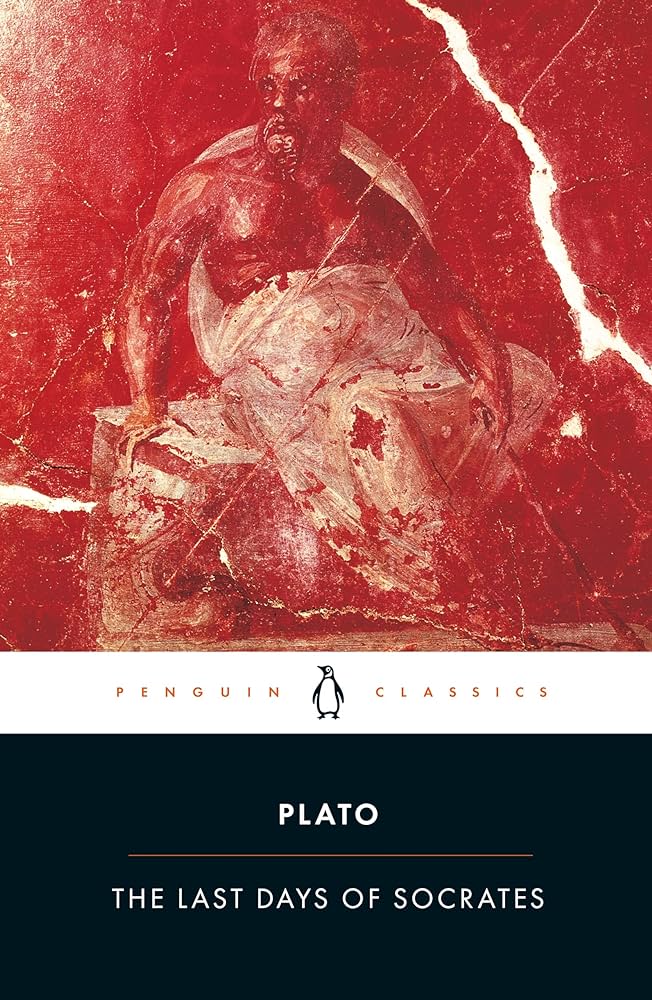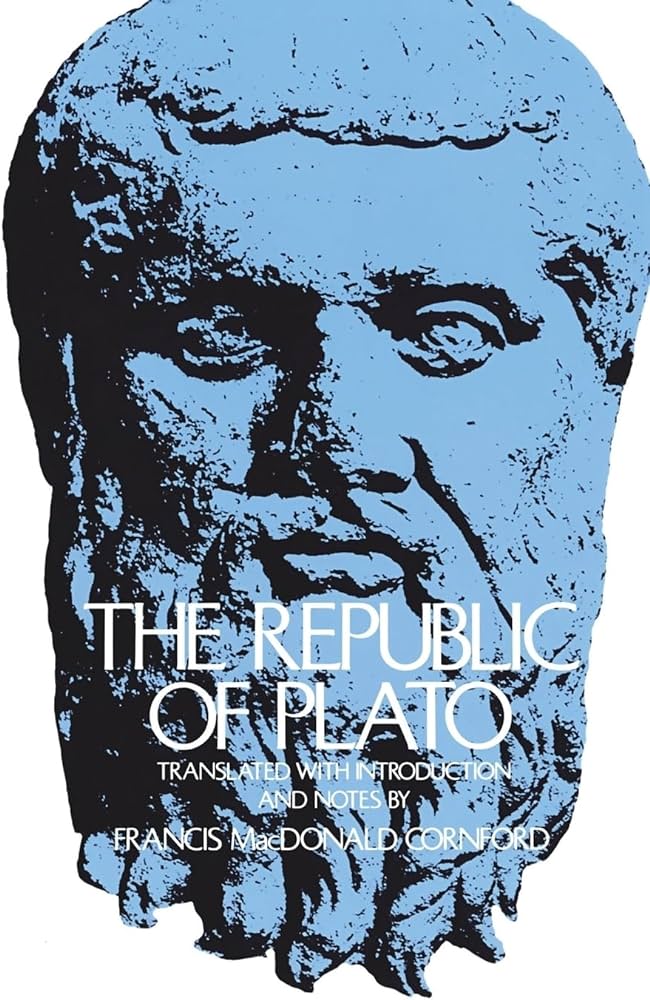Original language: Greek.
I read The Last Days of Socrates, which includes the dialogues Euthyphro, Apology, Crito, and Phaedo. Translated by Hugh Tredennick and Harold Tarrant, published 1954 and last revised 1993, by Penguin.
I also read The Republic, translated by Francis M. Cornford (1874-1943), first published in 1941 by Oxford University Press.


The Last Days of Socrates
The four dialogues in The Last Days of Socrates cover the period of Socrates’s trial, imprisonment, and death (a death penalty he could have avoided but insisted on carrying out).
Socrates’s behavior reminds me of Oscar Wilde. He refuses to escape and plays out all the consequences sought by his accusers, to his doom.
Socrates believed many crazy and outlandish things. It’s hard to credit any of what he says due to those stupid beliefs.
Overall thoughts on The Last Days of Socrates — disappointing. So much of his philosophy is bullshit.
Plato’s Republic
The Republic is Plato’s attempt at imagining the ideal state.
I find Plato’s views on the appropriate literature for education too extreme. He would ban teaching children any of the myths about the gods fighting, or changing their shapes, or doing anything immoral. I agree that many of those tales are unsuitable for the youngest children, but I’d include them in the curriculum for older children. Plato seems blind to the beauty of the myths. He’d censor Homer completely, or vitiate his work.
Plato is a prig and his Guardians are macho stick figures devoid of soul, empathy, flexibility, or sense of humor. Plato’s “republic” would be like the Islamic Republic of Iran, where every form of art is censored in the service of the all-powerful state.
“Then you will establish in your state physicians and judges .. (who) will look after those citizens whose bodies and souls are constitutionally sound. The physically unsound they will leave to die; and they will actually put to death those who are incurably corrupt in mind.”
In Plato’s “Republic” they would breed people as if they were animals. It would be like the Nazi state. The state would tell you who to marry and when you were allowed to have sex with your spouse. They would take the babies away from the parents immediately when born. And they would kill the “defective” children.
Plato was a philistine who would ban poetry and drama in his “perfect” state.
I did like the description of the universe at the end of the book — though not scientifically accurate, it was poetic.
Final thoughts on Plato’s Republic
Definitely not a world in which I would want to live. Plato’s vision of the perfect society has way too much in common with the Khmer Rouge, the Chinese Cultural Revolution, Nazi Germany, and the Islamic Republic of Iran for me to like it.
Leave a Reply